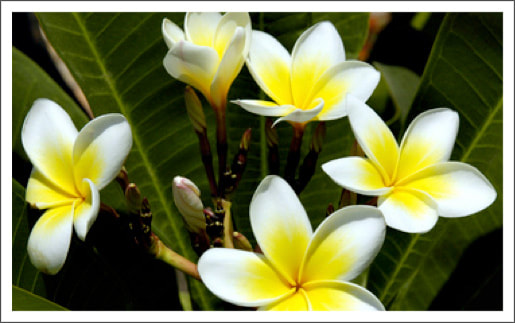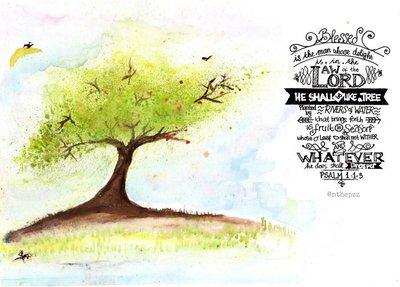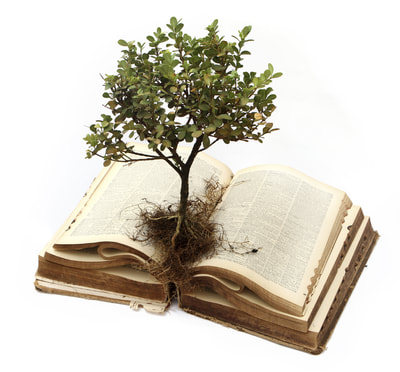This is a provocative phrase that sets two nouns that do not ordinarily hang out together, beauty and holiness, in company with the verb worship. Worship, an energetic and all involving verb.
Beauty is splendor, grandeur, adornment. Life - core existence - spills over the containers of mere survival or utility.
Holiness. An interior fire, a passion for living in and for God. A capacity for exuberance in the presence of God. In His presence there are springs deep within and around us which we drink and sing God.
It's life really. Beauty is the outside and holiness the inside of what is essentially the same thing. It is life God created and God blessed, life here and now.
When we get glimpses of the intricate connections between everything we see and can't see, the usual metaphor is "heaven and earth". When we sense the pulse and surge of life within and around us, our spontaneous response is to worship.
Worship is the most soul-involving, reality-assimilating act available to human beings. We are most ourselves, our image-of-God selves, when we worship: "O worship the Lord in the beauty of holiness."
_________
Of course, the issue is that both beauty and holiness are in short supply. Beauty is commonly trivialized in our culture, reduced to pretty or nice, or it is mere decoration.
But beauty isn't an add-on. It is not an extra. Its not what we pay attention to when we break from reality. Beauty is fundamental. It is evidence of inherent wholeness and goodness of things. It is life in excess of what we can manage or make on our own.
Beauty arrives through a sustained and adorational attentiveness to what is there: a rock, a flower, a bird, a face, a rustle in the trees, a storm crashing through the mountains.
When we are tired and our senses dull and our attention wavers, writers, singers, artists, all grab us and say, "Look, listen, feel! Embrace and respond to life within you and around you!" This is what the poet of Psalm 29 is doing.
"Pay attention. Be astonished. Tell about it." Mary Oliver wrote these words and it adequately captures verse two.
If the fate of beauty in culture is to be trivialized, the fate of holiness is to be reduced to blandness. Many sectarian groups reduce life to behaviors and cliches that can be certified as safe. Goodness in a straitjacket if you will, truth drained of mystery, beauty reduced to platitudes or knickknacks. Ellen Glasgow had a wonderful line in her autobiography where she described her father, a Presbyterian elder full of rectitude and rigid with duty: "He was entirely unselfish, and in his long life ... never committed a pleasure."
Holiness is in wild opposition to all this banality and blandness. We are introduced to it through the stories of the burning bush in Midian, the mountain on fire at Sinai, the smoke and angel filled temple in Jerusalem. We find ourselves in the presence of God alive, with life far in excess of anything we imagined. This God-life cannot be domesticated or used: it can only be entered into on its own terms. Moses and Isaiah walked out of those stories on fire themselves, energized for lifelong, life-giving vocations. Holiness did not make God smaller so they could use God in convenient and manageable projects. It made those men larger.
Frederick Buechner took on the task of re-imagining holiness. He put the fire, the smoke, and the angels back into holiness and holy living. Leo Bebb in The Book of Bebb and Godric and Brendan, and hen with Jacob in The Son of Laughter, Buechner immersed us in convincing, contagious stories of holiness that exude life, stories of life giving, life enhancing, life-deepening holiness.
Here is the catch. Life, which is characterized by its modifier holiness as God's life and God-derived life, lavish and exuberant, beyond domestication and inaccessible to control, is mediated to us in beauty. Beauty.
Beauty is our sensory access to holiness. God reveals himself in creation and in Christ, in ways we can see and hear and touch and taste, in place and person. Beauty is the term we use for these hints of more. Hints of transcendence that show us there is more going on than what we can account for.
We need to rub our noses in the stuff of this world, inhale its fragrance, press our hands in the clay, listen to songs and stories. God is our recruiting every writer, artist, musician, pastor, child, and parent he can find to help us do just that so we can worship the Lord in the beauty of Holiness.
________
The phrase "worship the Lord in the beauty of holiness" is embedded in the experience of wild, crashing thunderstorm. The storm is then turned into an extended metaphor in which the thunder is the voice of the Lord, qol-Yahweh. Seven great thunderclaps, seven times the Lord peals out:
The voice of the Lord is over the waters;
the God of glory thunders,
the Lord, over many waters. (verse 3, ESV)
For the Hebrews, the waters were chaos, the uncontrollable and uncontrolled, the home of Leviathan, anticreation if you will. But when the voice of the Lord thunders over the waters, chaos becomes subject to creation: life, an allusion to Genesis 1, our first glimpse of the beauty of holiness.
Storms are splendid, beautiful, awesome. God is on display performing the beauty of holiness, and we have a ringside seat.
The voice of the Lord breaks the cedars;
the Lord breaks the cedars of Lebanon.
He makes Lebanon to skip like a calf,
and Sirion like a young wild ox. (verse 5-6, ESV)
Now the imagination of this praying poet takes off: the voice of the Lord splits huge trees into kindling for bonfires and turns immense mountains into a carnival of dancing animals. Lebanon is a grand mountain range to the north of Israel, and Siren is its largest mountain, a nine-thousand-foot snow-covered peak. The cedars of Lebanon, like the sequoias of California, were renowned for their monumental majesty. We are witness to a world at play to the glory of God, in the beauty of holiness.
The voice of the Lord flashes forth flames of fire. (verse 7, ESV)
Lightning bolts stab the darkness in a magnificent light show, each lightning strike illuminating another detail in the beauty of holiness.
The voice of the Lord shakes the wilderness;
the Lord shakes the wilderness of Kadesh. (verse 8, ESV)
An earthquake now. The Lebanon mountains at play to the north are matched by the Kadesh wilderness in ecstasy in the south. Earthquakes are normally frightening, but in this context we imagine something more like children skipping or bouncing on a trampoline.
The voice of the Lord makes the oaks shake
and strips the forest bare,
and in his temple all cry, "Glory!" (verse 9, ESV)
Can you imagine trees whirling like partners in fast-paced dance, the voice of the Lord calling out the moves, leaves swirling from the trees like skirts and scarves of dancers, the rhythms and movements and exchanges beautiful in holiness.
Suddenly they are assembled in the temple. Oceans roaring, mountains playing, lightening flashing, wilderness skipping and tumbling, oak forest dancing.
Every time God speaks, there is more life. The energy and exuberance in place and people accumulate. And them we hear, "In his temple all cry, 'Glory'".
If we have been paying attention, we are here with them. We are at worship in the beauty of holiness.
_______
The Spirit of God has descended on this old world of ours. It could be a grace-revealing gesture, raindrops on the window, a friend's forgiveness, a miracle conversion, a truth-telling poem, a rose in bloom. The beauty of holiness. And we have ringside seats.
Henry James said that a writer is a person on whom nothing is ever lost. That sounds like a focused Christian identity to me: the men and women on whom nothing, at least thing that has to do with life - an everything does - is lost.
Worship the Lord in the beauty of holiness. (verse 2, KJV)
Amen.




 RSS Feed
RSS Feed